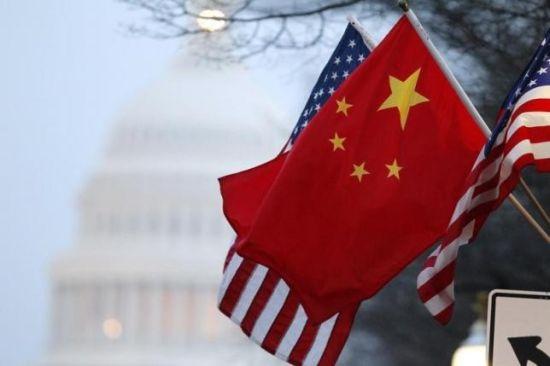BEIJING, June 1 (Xinhua) -- Undoing the economic interdependence between China and the United States is "unacceptable" to the world and will lead to irreversible damage to global supply chains, Robert Kuhn, a renowned U.S. expert on China, warned.
Kuhn, chairman of the Kuhn Foundation, made the remarks in a recent interview with Xinhua in response to recent voices in the United States that advocate pulling apart the two countries economically.
"Once you begin disrupting global supply chains, it's not something that you can easily restore," said Kuhn, who has been awarded the China Reform Friendship Medal by the Chinese government. "In fact, even starting the change, it probably can never be restored totally."
While depicting the worst possible scenario of trade tensions between China and the United States, Kuhn said there has to be a way out, otherwise the consequence is "horribly inefficient" on many levels.
"It's bad in terms of technology. It will slow down the innovation rate of the whole world," Kuhn said.
Misperceptions on both sides shadow the current standoff between the two largest economies in the world, Kuhn said while naming some of the fierce arguments that comprise the trade frictions, including loss of jobs in U.S. manufacturing industry, U.S. trade deficit with China, market access and intellectual property rights protection.
"We tend to generalize when we see the other," while the reality is more complex and fine-grained and needs to be seen through the other's perspective in order to be well understood, he said.
Over the last 20 to 30 years, millions of Americans lost their jobs in manufacturing sectors and indeed many manufacturing jobs were transferred to China, which makes some people feel that China is the cause of those jobs being lost. "That is not a valid point," he said. "That's the way the world becomes more efficient via globalization."
If those jobs did not go to China, they would have gone to someplace else with lower production costs because of a market system, said Kuhn. "If you stop all Chinese imports ... those jobs are not coming back to the United States in large numbers."
"They would go to Mexico or Vietnam or Bangladesh ... and they would be at a somewhat higher price and lower quality," he added, mentioning that Chinese products have the best price-quality relationship, because that is what the market has determined.
If those jobs were to be successfully brought back by setting restrictions, "that would hurt the United States ... because they would be lower-level manufacturing jobs and therefore undermine in the long run U.S. technology and productivity," Kuhn explained.
In the latest flare-up of U.S.-China trade tensions, Washington increased additional tariffs on 200 billion U.S. dollars' worth of Chinese imports from 10 percent to 25 percent in May, and has threatened to raise tariffs on more Chinese imports.
In response, China has announced that it "will fight to the end," and raised additional tariffs on a range of U.S. imports starting from June 1.
On the issue of trade deficit, Kuhn said "it's not China ripping off the U.S.; that's not the way it works."
U.S. consumers benefit because their standard of living has been raised by getting cheaper products with better quality, said Kuhn, noting that "it's kind of a reciprocal arrangement."
"Large trade deficits are not necessarily sustainable over a long period of time, but it is a mistake to blame China for them," he added.
On intellectual property rights protection in China, Kuhn said the perception in the United States about this issue is not accurate as to the current situation.
Elaborating his experience with Shanghai's intellectual property court, one of the several courts established in China for intellectual property rights protection, Kuhn said over the last 10 years, China is really making progress in this area.
The way to deal with the China-U.S. deadlock, Kuhn suggested, is to look squarely at the real issues from each side's perspective, analyze them with respect to what informs and motivates them, and then try to discern the core issues and bottom lines.
The two sides need to solve some of the less-difficult problems rapidly and then seek compromise or reconciliation on the more-difficult ones, according to Kuhn.




 A single purchase
A single purchase









